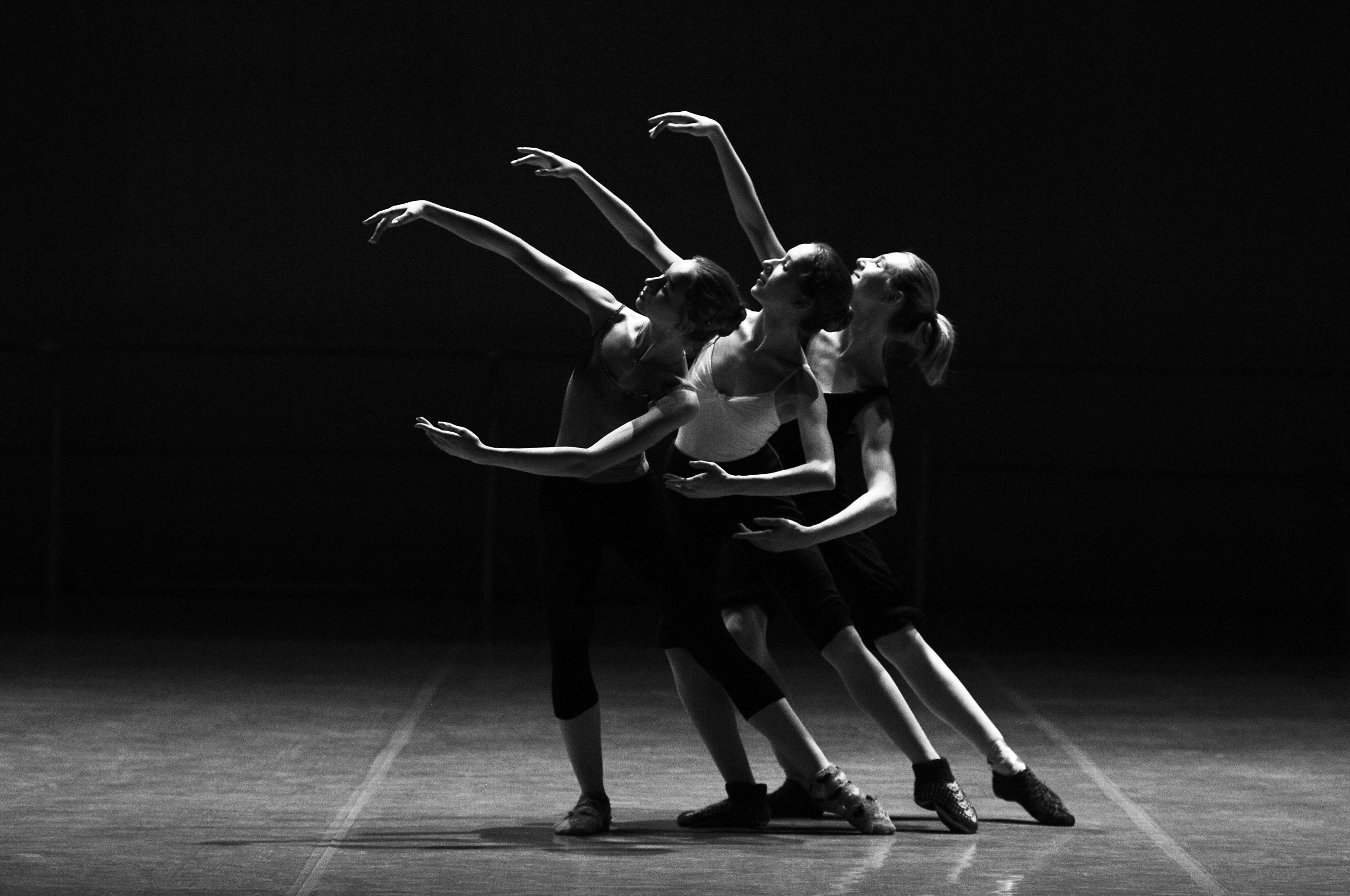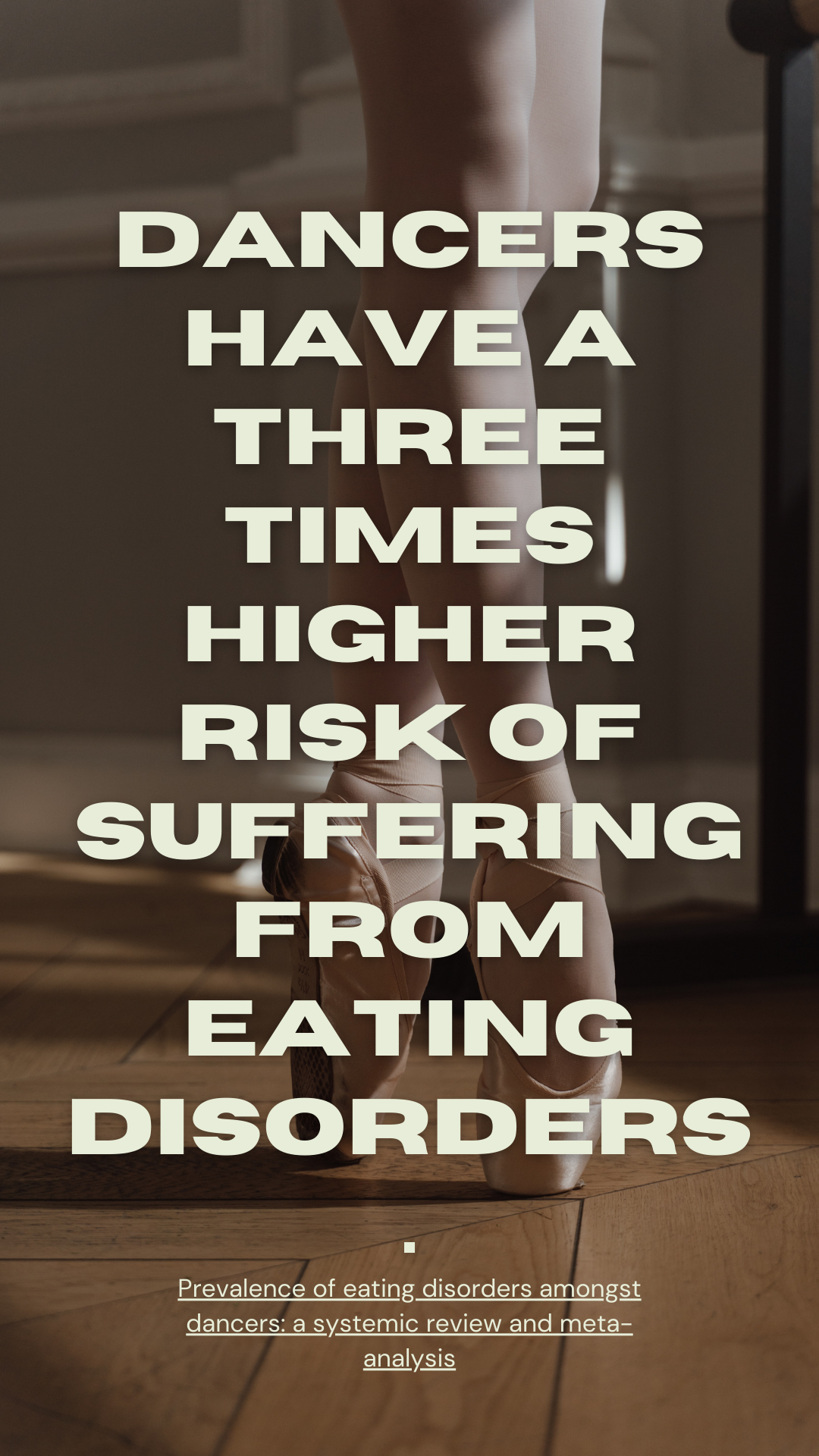Inside the UK’s top performing arts schools:
Former dance students speak out about body-shaming and abuse

Each year, thousands of budding performers audition for dance and drama schools across the UK. These highly competitive institutions select the best-of-the-best to train into industry professionals. There’s no business like show business, but what is it really like inside these institutions?
Former students from Bird College and Masters Performing Arts revealed shocking instances of body-shaming which they describe as the norm across the industry. Allegations indicate highly pressured environments where staff focus on dancers' appearances rather than their health and well-being.
Whilst body diversity is celebrated in other industries, these students' stories indicate that it is yet to be embraced within the dance and musical theatre world.
Amy's Story
Amy attended Bird College from 2017-2019, and did not complete her three-year course due to her negative experiences at the school. She described her time at the school as the unhappiest years of her life due to an alleged culture of body-shaming and pressure.
From the get go, Amy described her appearance, weight and diet being considered upon entrance to the school. In her audition, she recalled having to lineup in her underwear in a busy school corridor waiting to be weighed and have her measurements taken. Shockingly, she reported that students were rejected based on their weight.
Amy said: "My friend was told she needed to lose a few pounds before starting at the college."
Prior to joining the school, Amy said she did not worry about her weight or diet, but when she started at the college, Amy began calorie-counting. She said diet plans were sent out to prospective students, instructing them on what they should or should not be eating.
Amy said: "How dancers looked was a huge thing: some teachers would comment on how pretty you were and only give opportunities to the dancers they considered beautiful.
"I remember being told by a teacher that I wasn't built like a ballerina because I was musclier and shorter."
Amy also reported instances of teachers pointing at students' stomachs and asking them what they had for breakfast.
"It shouldn't matter what a dancer's body looks like as long as their bodies are fit and healthy and get them through the day."

The turning point
During her second year at Bird, Amy suffered with a serious injury in her shoulder. The ongoing injury worsened at the college due to the number of hours she was dancing each week. In January 2019, the injury meant Amy could not dance due to the risk of her shoulder dislocating. She still attended lessons but had to sit out and observe.
Amy said: "Some teachers started refusing to say my name and simply referred to me as 'the injured girl'.
"When I did start to dance again, they would pick me apart and make comments about my shoulder and tell me that I would be good if I didn't have an injury."
This culminated when Amy's shoulder dislocated during a jazz class. She said her classmates ran to the onsite physiotherapists for help, but they refused to move to the studio and required Amy to come to them.
She said: "Bear in mind, I was on the floor screaming because my shoulder was dislocated.
"My teacher was just stood there doing nothing."
She said eventually staff members from the sport and fitness department came to her aid and put her shoulder back into place in the middle of the studio.
Amy said: "That was the point I decided I couldn't do it anymore.
"It made me feel like I wasn't good enough, so I just thought, what's the point of putting myself through another year of this?"
We reached out to Bird College for a response to these allegations, but they declined to comment.


https://pubmed.ncbi.nlm.nih.gov/24277724/ (Image made using Canva)
https://pubmed.ncbi.nlm.nih.gov/24277724/ (Image made using Canva)
Mental health and the performing arts
A 2022 study by Equity suggested that levels of depression and anxiety are 7% higher in students on music or performing arts courses compared to the general student population. It also showed that 45% of contemporary student dancers and 52% of student actors reported having anxiety symptoms.
Other studies looking at disordered eating amongst dancers show that:
- Dancers have a three times higher risk of suffering from eating disorders.
- When compared to the general population, dancers are more prone to restriction and a drive for thinness.
- More than one in two female dancers and one in three male dancers do not meet their energy needs.
Holly's Story
Holly studied dance and musical theatre at Master's Performing Arts from 2016 to 2019. Whilst she said that overall she enjoyed her time at the school, she disliked the culture of body-shaming at the institution. Like Amy, she reported that a lot of students' worth was based on their appearance.
Holly said: "I was regularly complimented on my body to the point that it was cringe worthy. One time I was asked to stand up in front of the heads of dance and the rest of my year and the whole room applauded.
"However I was so small that my period actually stopped all together so realistically I wasn’t healthy at all."
Holly said that whilst teachers praised her appearance, her dance and performance ability was rarely spoken about. She also described several instances where teachers made uncomfortable comments. One teacher, she recounted, would make inappropriate remarks about female students' cellulite. Another, she said, would comment on students' stomachs, telling them to work on "getting rid" of their belly fat. Holly said that students were also instructed not to eat past 9pm to avoid sleeping on a full stomach and developing stomach fat.
Holly said: "Staff were naive when it came to eating disorders.
"A student would rapidly lose weight and become weaker and exhausted and instead of stepping in and suggesting a break, they would reward them by giving them praise about how far they’d come, putting them in more show pieces, or giving them lead solos."
"Teachers would make comments about how they could now wear a catsuit or leotard - it was scary to watch."
Holly reflected that she believes teachers were carrying the baggage from their training and passing it onto their students.
We reached out to Masters Performing Arts for a comment on these accusations and received no reply.

Environmental factors contributing to the development of eating disorders
Mental Health UK cites the environmental factors contributing to eating disorders as:
- Pressure at school
- Bullying or abuse
- Criticism for your body shape or eating habits
- Difficult family relationships
- Having a job or hobby where being thin is seen as ideal
The reports from Amy and Holly indicate that factors contributing to eating disorders were heightened in their dance school environments. These schools are highly pressured, and students face comments about their body and eating habits. Being thin is seen as ideal for trainees hoping to make dance and theatre their careers. However, whilst the industry is competitive and fast-paced, students' training should not come at the cost of their health.
I take a look at the environmental factors contributing to the development of eating disorders in dance schools.
